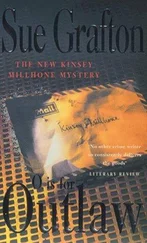When he looked in on her an hour later, she didn’t look right at all. He crossed to her bedside and put a hand on her forehead the way she did when she thought he was running a fever. Her skin was hot to the touch and her breathing was rapid and shallow. She was shivering uncontrollably, and when she opened her eyes, he said, “Are you okay?”
“I’m cold, that’s all. Bring me that quilt in the linen closet, please.”
“Sure.”
He found some blankets and piled them on, worried he wasn’t doing enough. “I think I should call an ambulance or something. Okay?” he asked.
When his mother didn’t answer, Jon called the paramedics, who arrived fifteen minutes later. He let them in, relieved to have someone else taking charge of her. One of the two men asked questions, while the other one took her temperature, checked her blood pressure, and listened to her chest. After a brief consultation and a phone call, they loaded her onto a gurney and put her in the rear of the ambulance. From the look that passed between them, Jon knew she was sicker than he’d thought.
When the paramedic told him he could follow them to St. Terry’s, he wanted to laugh. “I’m a kid. I can’t drive. My dad’s not even home. He’s out of town.”
After more murmured conversation, he was allowed to ride in the front of the ambulance, which he gathered was against the ambulance company’s policy.
In the emergency room, he sat in the reception area while the doctor examined his mom. The nurse told him he should call someone, but that only confused him. He didn’t know how to reach his brother in Nashville and who else was there? It wasn’t like he had his teacher’s home telephone number. The school would be closed by then anyway, so that was no help. There weren’t any other close relatives that he knew of. His parents didn’t go to church, so there wasn’t even a minister to call.
The nurse went back down the hall and pretty soon the hospital social worker showed up and talked to him. She wasn’t much help, asking him the same series of questions he couldn’t answer. She finally contacted a neighbor, a couple his parents barely knew. Jon spent that night and the next night with them. He left notes on the front and back doors so his father would know where he was.
His mother survived for a day and a half and then she was gone. The last time he saw her-the night his father finally showed up-she had IV lines in both ankles. There was a blood-pressure cuff on one arm, and a clamp on her finger to measure her pulse, a catheter, an arterial line in one wrist, and tubing taped over her face. He knew the exact moment the rise and fall of her chest ceased, but he watched her anyway, thinking he could still see movement. Finally, his father told him it was time to go.
Lionel drove them home and spent the next two hours on the phone, notifying friends and relatives, the insurance company, and Jon wasn’t sure who else. While his father was occupied, Jon went into his mother’s room. Lionel’s side of the bed was untouched and still neatly made, while on his mother’s side the sheets were rumpled, with pillows still stacked against the headboard. There were the same wadded tissues on the floor.
The plate with the grilled cheese sandwich was on the table. It was cold and the bread had dried out, but he sat on the edge of the bed and ate it anyway while his body warmth brought up his mother’s scent from the sheets. Because of his braces, he couldn’t bite down on a sandwich without getting bread sludge stuck in the wires, so he broke off bites one at a time and chewed them, thinking of her.
At ten that night, his father found him, sitting there in the dark. Lionel turned the light on and sat down beside him, putting an arm around Jon’s shoulder.
“You weren’t at fault, Jon. I don’t want you to think anyone blames you for not getting help to her soon enough…”
Jon made no move. He felt the cold descend, moving from his chest to the soles of his feet. His cheeks flamed and he looked up at his father blankly. Until that moment, it hadn’t occurred to him that any action on his part might have saved her life. He was only thirteen. His mother had reassured him, saying she was fine, and he’d taken her at her word. In the absence of adult counsel, he’d waited for a cue. In a flash, he saw how pathetic his ministrations had been, how immature and ineffectual he was in making the grilled cheese sandwich, as though that might heal her or prolong her life.
It wasn’t until years later that it dawned on Jon his father had made the statement to assuage his own guilt about his failure to leave a contact number. In truth-and Jon wouldn’t learn this until later still-Lionel had been in a hotel room, frolicking with a grad student he’d met while he was giving a talk at Boston College.
His brother came home for the funeral, but then he was gone again. The remainder of the school year was strange. Jon and his dad fashioned a life for themselves, like two old bachelors. His dad paid the bills and kept their world, more or less, on track. The house was a mess. For meals, they ate out, brought home fast food, or ordered in from any restaurant that would deliver. Lionel went back to teaching freshman English and two sections of literary history, spending long hours at UCST. Jon pretty much did as he pleased. Nobody seemed to recognize that he was grieving. He knew something black had settled over him like a veil. He spent a lot of his free time in his room. As a fat boy, he had no friends to speak of, so he was comfortable in isolation. His grades were mixed-good in English and art, bad in everything else. A cleaning lady came in twice a week, but that was about as much contact as Jon had with other people. His teachers gave him sympathetic looks, but his demeanor was so dark they didn’t have the nerve to console him.
In the spring, without any discussion at all, Jon found out his father had signed him up for two monthlong sessions of summer camp, back to back. Lionel had committed to a series of speaking engagements that would have him zigzagging across the country nonstop during June and July. The day after school was out, Jon was shipped off to Michigan. This was a so-called sports program, meaning an intense boot camp for fat boys, during which they were weighed daily, lectured about nutrition, berated for their eating habits, and forced into long sessions of exercise, during which the occasional boy collapsed. Oddly enough, Jon enjoyed himself. His loneliness, his guilt, the silence of the house, even the yawning loss of his mother, all of that was set aside for two months, and he needed the relief. The boys were encouraged to choose a sport-basketball, football, soccer, hockey, lacrosse, or track.
Jon took up long-distance running. He liked sports where individual achievement was the goal. He liked competing with himself. There was nothing in his nature that lent itself to team spirit. He wasn’t cooperative by nature, not a rah-rah kind of guy. He didn’t want to wear a uniform that rendered him indistinguishable from fifty other boys on the field. He preferred being on his own. He liked pushing himself. He liked the sweat and the harsh laboring of his lungs, the pain in his legs as he covered ground.
By the time he came home from camp, the promised growth spurt had materialized. Jon’s weight had dropped by twenty-two pounds and he’d added three inches to his five-foot-six-inch height. During ninth and tenth grades his braces came off and he shot up another four inches. He also dropped an additional ten pounds. Running kept him lean and filled him with energy. He took up golf and in his spare time caddied at the club. He and his father operated on separate but parallel tracks, and Jon was fine with that.
In August of 1964, prior to Jon’s freshman year at Climp, Lionel appeared at the door to the den where Jon was slouched on the sofa watching television. He had his feet propped on the ottoman and he held a glass of Diet Pepsi balanced on his chest. His father had been going out a lot, but Jon hadn’t thought much about it.
Читать дальше












